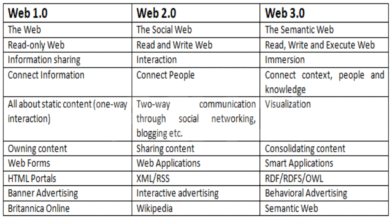What to Know Before Starting an Industrial Construction Project
Introduction
Starting an industrial construction project is not like building a house. It involves larger spaces, stronger structures, and strict planning to support machinery, safety, and workflow. Whether it’s a warehouse, production unit, or packaging facility, the construction phase plays a big role in the success of the business.
In Pakistan, where climate, land quality, and electricity needs vary across regions, careful planning becomes even more important. This post will walk you through the key things you should know before starting an industrial construction project.
Understand the Purpose of the Facility
Before breaking ground, you need to clearly define the purpose of the building. Is it for manufacturing, storage, cold supply, or heavy processing? Each purpose comes with its own set of design and engineering needs.
For example:
- A food processing unit needs hygienic surfaces and proper water drainage.
- A warehouse must have strong flooring for forklifts and racks.
- A textile unit may require ventilation systems and wide-span sheds.
Having a clear understanding of function helps shape the entire project.
Choose a Location That Supports Industrial Needs
Land selection is key. Make sure the area:
- Is legally approved for industrial use
- Has proper road access for heavy transport
- Gets reliable electricity and water supply
- Is far from residential zones to avoid future complaints
In Pakistan, cities like Lahore, Faisalabad, and Karachi have designated industrial areas, which makes approvals and utilities easier.
Design with Durability and Safety in Mind
Industrial buildings must be built to last. They face:
- Heavy loads
- Constant vibration from machinery
- Exposure to chemicals, heat, and moisture
This means the construction must follow industrial-grade safety standards. Proper concrete mix, reinforced steel, and chemical-resistant materials should be used. Safety exits, fire-fighting systems, and emergency lighting must also be included in the plan.
Don’t Skip Soil Testing and Ground Preparation
In Pakistan, many areas have unstable or mixed soil. Starting heavy construction without a soil report is risky. Soft or weak soil may require deep piling or soil improvement before construction.
A detailed geotechnical survey ensures the foundation won’t crack or settle over time, especially if you’re building on large spans.
Include Space for Future Expansion
Your current production might need 10,000 sq. ft., but in 5 years you might need 15,000. If the site allows, plan for future growth. Smart industrial layouts leave space for new sheds, extended flooring, or even extra office rooms down the line.
Hiring the Right Team Matters
While researching industrial construction in Pakistan, we came across Shelter Engineering, a company that provides complete solutions for industrial shell construction. They focus on large-scale building needs and handle design, materials, and execution with structural supervision. Their local experience allows them to deal with Pakistan-specific issues like soil strength, local approvals, and utility arrangements.
Check out one of their industrial construction services here: https://sheltersengineering.com/industrial-shell-construction-services-pakistan/
Follow Local Building Codes and Approvals
Industrial construction must follow building bylaws. Without approvals, your structure may face legal action or heavy fines. Every city development authority has different requirements, such as:
- Building height limits
- Distance from roads
- Boundary walls and covered area limits
In many cases, you’ll also need environmental clearance, especially for production facilities.
Invest in Long-Lasting Utility Planning
Industrial sites depend heavily on utilities. Plan for:
- Proper electricity cabling and backup systems
- Water lines and drainage that support factory use
- Gas supply for heating or processing (if applicable)
- Ventilation systems and ducting for worker safety
Poor utility planning can shut down work later, so it’s better to over-plan than under-plan.
Also Read: https://sheltersengineering.com/
Final Thoughts
Industrial construction is a long-term investment. Cutting corners in material, labor, or layout can cost you more in repairs, downtime, or safety incidents. Working with experienced professionals who understand the local context is the best way to build something that not only works but lasts. From site prep to structural strength, every step must be done with care, because the future of your industry depends on the strength of its foundation.




